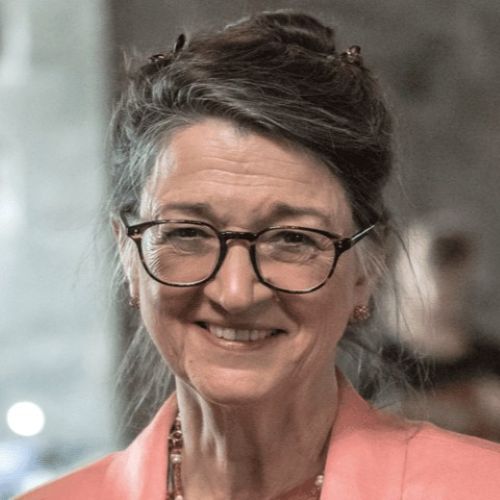
Dr. Marina Warner
Introduction
Marina Warner is a distinguished cultural historian, novelist, and mythographer whose work has transformed the study of myths, stories, and symbols in both historical and modern contexts. Born in London in 1946, she grew up across different countries, including Egypt and Belgium, an upbringing that gave her a cross-cultural perspective that deeply shaped her intellectual path. Educated at Lady Margaret Hall, Oxford, she began her career writing about art and literature before becoming one of the most respected voices in mythology and cultural criticism. Over the decades, Marina Warner has carved a reputation not only as a brilliant academic but also as a public intellectual who bridges scholarly knowledge with contemporary debates about culture, identity, and power.
Area of Expertise
The scholarship of Marina Warner spans a wide intellectual territory. Her work consistently examines how stories—whether myths, fairy tales, or religious narratives—encode cultural values and social anxieties. She is especially recognized for her explorations of the representation of women in myth and history, from the Virgin Mary to Joan of Arc, highlighting how female figures are both idealized and constrained within symbolic traditions.
Her approach is strikingly interdisciplinary, drawing from literature, anthropology, psychoanalysis, art history, and media studies. By weaving together these strands, Warner demonstrates how myths are not static relics of the past but active frameworks that shape politics, identity, and cultural imagination today. She has also written extensively on visual culture, examining how myths are translated through painting, sculpture, photography, and film. This blending of textual and visual analysis makes her one of the most versatile voices in the study of narrative traditions.
Books & Publications
The body of work authored by Marina Warner is as vast as it is influential. Her nonfiction books form the backbone of her reputation, beginning with Alone of All Her Sex: The Myth and the Cult of the Virgin Mary (1976), a pioneering feminist reading of Marian devotion. She continued this line of inquiry with Joan of Arc: The Image of Female Heroism (1981), which examined how Joan’s myth was constructed and reimagined across centuries.
Her interest in fairy tales culminated in From the Beast to the Blonde: On Fairy Tales and Their Tellers (1994), which explored both the history of these stories and the cultural power of their mostly female narrators. Later works such as No Go the Bogeyman (1998) and Phantasmagoria (2006) expanded her analysis to the cultural uses of fear, spirits, and the supernatural in modernity. Stranger Magic: Charmed States and the Arabian Nights (2011) won multiple awards for its insight into the global influence of the Arabian Nights, while Once Upon a Time (2014) offered a concise yet profound history of fairy tales.
In addition to her nonfiction, Marina Warner has written acclaimed fiction. Novels like The Lost Father (1988), which was shortlisted for the Booker Prize, and Indigo (1992), a reimagining of Shakespeare’s The Tempest, showcase her ability to weave myth and history into inventive narratives. Her later novel The Leto Bundle (2000) explored themes of migration, myth, and memory. More recently, her memoir Inventory of a Life Mislaid (2021) reflected on her cosmopolitan childhood and her father’s bookshop in Cairo, revealing how her early life shaped her engagement with stories and symbols.
Research & Contributions
Marina Warner’s research is characterized by its originality and breadth. She has consistently pushed the boundaries of how myths and narratives are studied, emphasizing their continuing relevance in contemporary life. Her 1994 BBC Reith Lectures, Managing Monsters: Six Myths of Our Time, became landmark talks that examined how age-old myths still frame discussions of gender, violence, and social order.
One of her most innovative contributions has been the creation of Stories in Transit, an initiative developed after she received the Holberg Prize in 2015. This project brings together artists, migrants, and community groups to explore storytelling as a tool for cultural survival and resilience. In contexts of displacement and migration, Warner emphasizes that stories can provide a sense of identity and belonging, making narrative not just a form of art but also a form of social healing.
Her academic career has included positions at the University of Essex, Birkbeck College, and Oxford, where she influenced generations of students and researchers. She has also written extensively on the role of myth and rhetoric in the age of mass media, arguing that myths are not confined to ancient texts but shape modern politics, advertising, and digital culture. Through her lectures, essays, and collaborations, Marina Warner continues to highlight why the humanities are essential for understanding the complexities of contemporary society.
Awards & Recognitions
The achievements of Marina Warner have been acknowledged through a long list of prestigious awards and honors. She received the Holberg Prize in 2015, one of the most significant recognitions for scholars in the arts and humanities, for her outstanding contributions to the study of stories and symbols. Her book Stranger Magic earned the National Book Critics Circle Award for Criticism (2012), the Truman Capote Award for Literary Criticism, and the Sheikh Zayed Book Award.
Her services to literature have been honored with appointments as Dame Commander of the Order of the British Empire (2015) and later Companion of Honour (2023), placing her among a select group recognized for extraordinary achievements in the arts and sciences. She has also received the Mythopoeic Award, the Rose Mary Crawshay Prize, and the British Academy Medal.
In addition to prizes, Marina Warner has been recognized with numerous honorary doctorates from leading universities, including Oxford, Columbia, and King’s College London. From 2017 to 2021, she served as the first female President of the Royal Society of Literature since its founding in 1820, marking another milestone in her groundbreaking career.
Social Media Profiles
Although Marina Warner is not a prolific presence on social media, she maintains an official website, marinawarner.com, which offers readers access to her publications, essays, lectures, and upcoming events. She occasionally shares updates and reflections on Twitter under @MarinaSWarner, where she highlights new projects and appearances.
Her ongoing initiative, Stories in Transit, can be explored at storiesintransit.org, a site that reflects her commitment to storytelling as a means of cultural connection and resilience. Through these online platforms, Warner provides insight into both her scholarly work and her continuing engagement with communities worldwide.
Bibliographic Sources
Birkbeck, University of London. (n.d.). Prof Marina Warner. Retrieved August 26, 2025, from https://www.bbk.ac.uk/our-staff/profile/8511371/marina-warner
Marina Warner. (n.d.). Curriculum Vitae. Retrieved August 26, 2025, from https://www.marinawarner.com/about/curriculum-vitae/
Marina Warner. (n.d.). Distinctions and Prizes. Retrieved August 26, 2025, from https://www.marinawarner.com/about/distinctions-and-prizes/
The British Academy. (n.d.). Professor Dame Marina Warner FBA. Retrieved August 26, 2025, from https://www.thebritishacademy.ac.uk/fellows/marina-warner-FBA/
Wikipedia contributors. (n.d.). Marina Warner. Wikipedia. Retrieved August 26, 2025, from https://en.wikipedia.org/wiki/Marina_Warner
Twitter. (n.d.). Marina Warner (@MarinaSWarner). Retrieved August 26, 2025, from https://twitter.com/MarinaSWarner




